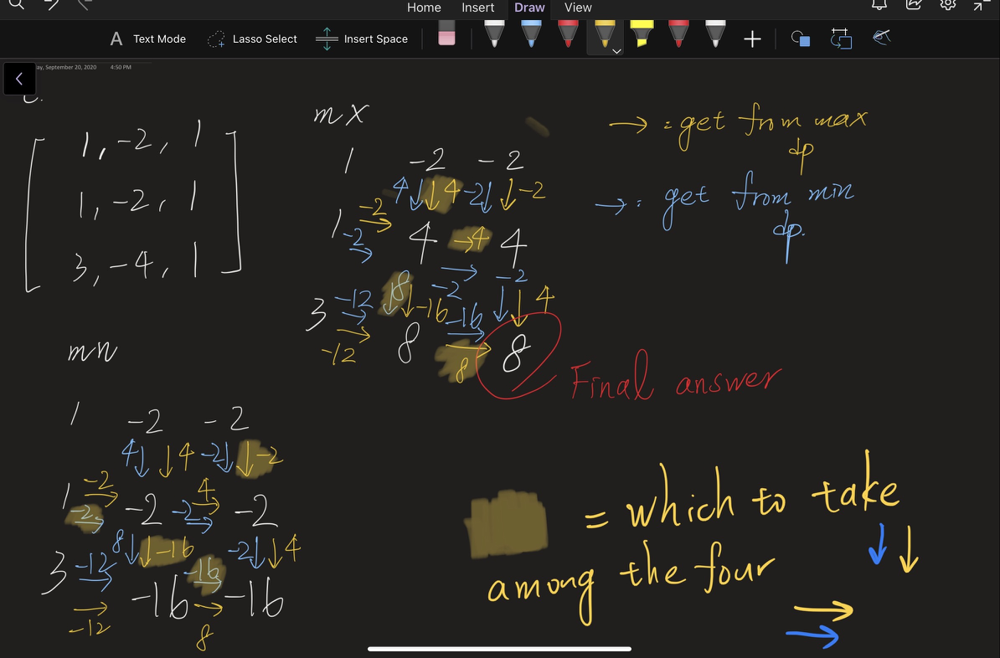- Assign min and max to avoid the need for special treatment during the first iteration. Int min = std::numericlimits::max; int max = std::numericlimits::min; Carefully crafted initial values are almost always superior to additional branches, which increase the complexity of the program in the eyes of the reader and potentially decreases performance drastically, if performance.
- This video explains C algorithms to find the largest and smallest element among two elements and also among a list of elements.It explains how to apply max.
C Algorithm minmax function can be used in following 3 ways: It compares the two values passed in its arguments and returns the smaller and larger between them,. Maxelement and minelement Method. Maxelement method's syntax is: maxelement(iterator first, iterator last, comparefunction) This method returns the largest element in the range first, last. Comparefunction can be omitted. If there is no comparefunction used in maxelement then elements are compared with operator by default. Check out for more free engineering tutorials and math lessons!C Programming Tutorial: Find the max or min value in an array.P.
| Language | ||||
| Standard Library Headers | ||||
| Freestanding and hosted implementations | ||||
| Named requirements | ||||
| Language support library | ||||
| Concepts library(C++20) | ||||
| Diagnostics library | ||||
| Utilities library | ||||
| Strings library | ||||
| Containers library | ||||
| Iterators library | ||||
| Ranges library(C++20) | ||||
| Algorithms library | ||||
| Numerics library | ||||
| Localizations library | ||||
| Input/output library | ||||
| Filesystem library(C++17) | ||||
| Regular expressions library(C++11) | ||||
| Atomic operations library(C++11) | ||||
| Thread support library(C++11) | ||||
| Technical Specifications |
| Constrained algorithms and algorithms on ranges(C++20) | ||||||||||||||||||||||||||||||||||||||||||||||||||||||||||||||||||||
| Constrained algorithms: std::ranges::copy, std::ranges::sort, ... | ||||||||||||||||||||||||||||||||||||||||||||||||||||||||||||||||||||
| Execution policies (C++17) | ||||||||||||||||||||||||||||||||||||||||||||||||||||||||||||||||||||
| Non-modifying sequence operations | ||||||||||||||||||||||||||||||||||||||||||||||||||||||||||||||||||||
|
|
| ||||||||||||||||||||||||||||||||||||||||||||||||||||||||||||||||||
| Modifying sequence operations | ||||||||||||||||||||||||||||||||||||||||||||||||||||||||||||||||||||
|
|
|
| |||||||||||||||||||||||||||||||||||||||||||||||||||||||||||||||||
| Operations on uninitialized storage | ||||||||||||||||||||||||||||||||||||||||||||||||||||||||||||||||||||
|
|
|
| |||||||||||||||||||||||||||||||||||||||||||||||||||||||||||||||||
| Partitioning operations | ||||||||||||||||||||||||||||||||||||||||||||||||||||||||||||||||||||
| ||||||||||||||||||||||||||||||||||||||||||||||||||||||||||||||||||||
| Sorting operations | ||||||||||||||||||||||||||||||||||||||||||||||||||||||||||||||||||||
| ||||||||||||||||||||||||||||||||||||||||||||||||||||||||||||||||||||
| Binary search operations | ||||||||||||||||||||||||||||||||||||||||||||||||||||||||||||||||||||
| Set operations (on sorted ranges) | ||||||||||||||||||||||||||||||||||||||||||||||||||||||||||||||||||||
| Heap operations | ||||||||||||||||||||||||||||||||||||||||||||||||||||||||||||||||||||
| ||||||||||||||||||||||||||||||||||||||||||||||||||||||||||||||||||||
| Minimum/maximum operations | ||||||||||||||||||||||||||||||||||||||||||||||||||||||||||||||||||||
| ||||||||||||||||||||||||||||||||||||||||||||||||||||||||||||||||||||
| Permutations | ||||||||||||||||||||||||||||||||||||||||||||||||||||||||||||||||||||
| ||||||||||||||||||||||||||||||||||||||||||||||||||||||||||||||||||||
| Numeric operations | ||||||||||||||||||||||||||||||||||||||||||||||||||||||||||||||||||||
|
|
|
| |||||||||||||||||||||||||||||||||||||||||||||||||||||||||||||||||
| C library | ||||||||||||||||||||||||||||||||||||||||||||||||||||||||||||||||||||
Defined in header <algorithm> | |
| (1) | |
template<class T > std::pair<const T&,const T&> minmax(const T& a, const T& b ); | (since C++11) (until C++14) |
template<class T > constexprstd::pair<const T&,const T&> minmax(const T& a, const T& b ); | (since C++14) |
| (2) | |
template<class T, class Compare > std::pair<const T&,const T&> minmax(const T& a, const T& b, | (since C++11) (until C++14) |
template<class T, class Compare > constexprstd::pair<const T&,const T&> minmax(const T& a, const T& b, | (since C++14) |
| (3) | |
template<class T > std::pair<T,T> minmax(std::initializer_list<T> ilist); | (since C++11) (until C++14) |
template<class T > constexprstd::pair<T,T> minmax(std::initializer_list<T> ilist); | (since C++14) |
| (4) | |
template<class T, class Compare > std::pair<T,T> minmax(std::initializer_list<T> ilist, Compare comp ); | (since C++11) (until C++14) |
template<class T, class Compare > constexprstd::pair<T,T> minmax(std::initializer_list<T> ilist, Compare comp ); | (since C++14) |

Returns the lowest and the greatest of the given values.
a and b. 
ilist.The (1,3) versions use operator< to compare the values, whereas the (2,4) versions use the given comparison function comp.
[edit]Parameters
C++ Min Max Vector

| a, b | - | the values to compare |
| ilist | - | initializer list with the values to compare |
| comp | - | comparison function object (i.e. an object that satisfies the requirements of Compare) which returns true if the first argument is less than the second. The signature of the comparison function should be equivalent to the following: bool cmp(const Type1 &a, const Type2 &b); While the signature does not need to have const&, the function must not modify the objects passed to it and must be able to accept all values of type (possibly const) |
| Type requirements | ||
-T must meet the requirements of LessThanComparable in order to use overloads (1,3). | ||
-T must meet the requirements of CopyConstructible in order to use overloads (3,4). | ||

[edit]Return value
a<b or if a is equivalent to b. Returns the result of std::pair<const T&, const T&>(b, a) if b<a.ilist as the first element and the greatest as the second. If several elements are equivalent to the smallest, the leftmost such element is returned. If several elements are equivalent to the largest, the rightmost such element is returned.[edit]Complexity
ilist.size() * 3 / 2 comparisons[edit]Possible implementation
| First version |
|---|
| Second version |
| Third version |
| Fourth version |
[edit]Notes
For overloads (1,2), if one of the parameters is a temporary, the reference returned becomes a dangling reference at the end of the full expression that contains the call to minmax:
[edit]Example
Possible output:
Random Number C++ Min Max
[edit]See also
| returns the smaller of the given values (function template)[edit] | |
| returns the greater of the given values (function template)[edit] | |
(C++11) | returns the smallest and the largest elements in a range (function template)[edit] |
(C++20) | returns the smaller and larger of two elements (niebloid)[edit] |

C++ Min Max Header
